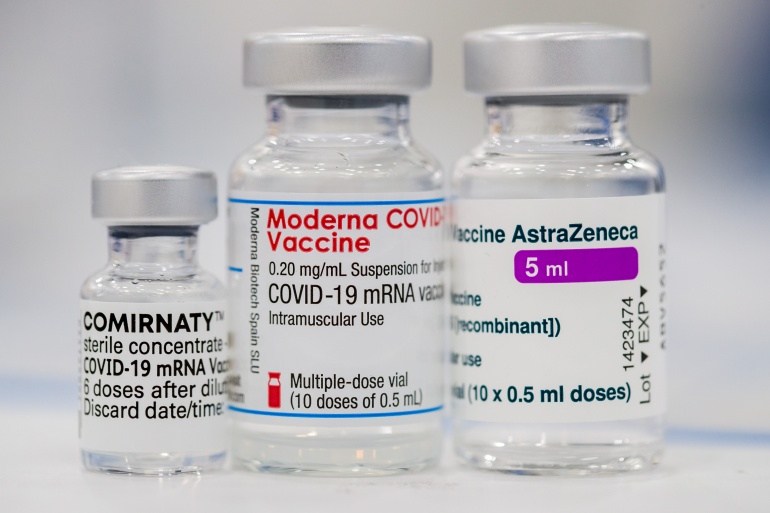People in Belgium who received the Pfizer or Moderna coronavirus vaccines will have to wait just four months instead of six to get their booster dose, the government decided on Wednesday evening.
The decision will accelerate the booster vaccination campaign and is partly in response to the rapid circulation of the Omicron variant. A government statement called the booster 'a key element in the fight against Covid-19 that increases the effectiveness of the protection against the new Omicron variant.'
According to calculations made by several experts, Omicron is likely to replace Delta as the dominant variant by the end of December or early January. Ten days ago in Belgium, only 0.3% of all infections were with this new strain, now this figure is more than 3%.
A UK Health Security Agency observed a gradual decline in the efficacy of the vaccine but noted that booster vaccines increase the efficacy of the vaccine against symptomatic forms of the infection caused by the Delta or Omicron variant by more than 70%.
Throwing everything behind the booster rollout
This considerable boost to immunity is the reason that many countries are forging ahead with booster dose campaigns and explains the decision taken at the Inter-Ministerial Conference (IMC) on Health that people who have received an mRNA vaccine (Pfizer or Moderna) can now receive a third dose after just four months.
Flemish Health Minister Wouter Beke said on Twitter that this is "an important line of defence against the Omicron variant."
Het interval van Pfizer en Moderna wordt ingekort van 6 maanden naar minstens 4 maanden na de tweede prik. Op die manier kunnen we boostervaccinatie versnellen, een belangrijke verdedingslinie tegen de Omikron-variant. Vlaanderen maakt zich klaar om te versnellen. #IMC
— Wouter Beke (@wbeke) December 15, 2021
The time span after an AstraZeneca vaccine remains at four months, while a two-month period remains in place for the Johnson & Johnson vaccine.
This adjustment to the scheduling of booster vaccination appointments will be updated on the reservation platforms in Flanders and Wallonia (QVax) and in Brussels (bruvax).
Reversing decreased efficacy
Although the emergence of the Omicron variant has increased the urgency of the booster campaign, these additional doses were already being administered in Belgium. This follows studies showing that the vaccines' effectiveness drops after around six months, with the greatest reduction in efficacy reported for the Johnson & Johnson vaccine.
Although data is still being gathered on the performance of vaccines against the Omicron variant (which has the highest number of mutations seen in any variant since the start of the coronavirus pandemic), it is now clear that booster doses offer valuable protection against this latest strain.
Related News
- 'There can and will be a fourth dose,’ says Molenberghs
- Johnson & Johnson vaccine can be used for booster shots
- Netherlands to give entire population booster shot after just three months
The early findings from real-world research from the Africa Health Research Institute in Durban found that the Omicron variant, first detected in South Africa at the end of November, partly escapes the protection offered by the Pfizer-BioNTech vaccine.
So far, almost 2.9 million people in Belgium have received a booster dose, representing 31% of over-18s and 25% of the entire population. The government forecasts that 4 million citizens who have been fully vaccinated will have received their booster by the end of December.
The majority of adults should have had the opportunity to get a booster dose by March 2022.

